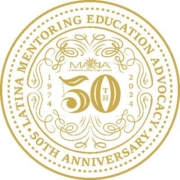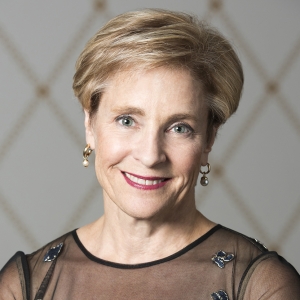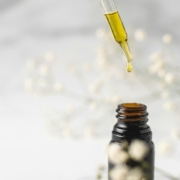 By Health Policy Intern Grace Lassila
By Health Policy Intern Grace Lassila
July 27, 2023
When I started my National Consumers League (NCL) internship in May 2023, I quickly dove into NCL’s health policy work. NCL is leading on several efforts to protect consumers –one area of focus that stood out to me is their work in the cannabis policy space. NCL is a founding member of Cannabis Consumer Watch (CCW), which educates consumers on cannabinoids, their effects, the risks related to the unregulated marketplace, and the ways policymakers and regulators can help protect consumers. NCL is also a part of the Collaborative for Cannabinoid Science and Safety (CCSS), which also works to educate people about cannabinoids and policy in the interest of public health.
CCW’s “test your cannabis knowledge” quiz was shocking for me. Going into the quiz, I was fairly confident about my knowledge, but as I started getting wrong answer after wrong answer, I realized I had no idea that not only are these products under-researched, but they may pose serious public health risks for consumers. Products can be sold, without having gained FDA approval, making false claims about their medicinal abilities. And side effects are not adequately researched or revealed to consumers.
One particularly concerning aspect of the cannabis marketplace is that while CBD or Delta-8 or other cannabis products are often marketed to women, there is a concerning lack of research into the safety of these products for women. Historically, misogyny and sex discrimination have made women’s health severely under-researched and underfunded. More research on diseases, disorders, and medication is conducted on men, not women. Women are misdiagnosed far greater than men are, and experience dangerous health outcomes because of it (Greenhalgh). And without sufficient research and data on women’s health, it is incredibly difficult for legislators to write policy (Adams). Overall, for women’s health to improve, more resources need to be devoted to this issue.
Despite cannabis companies’ marketing efforts that claim their products can help with anything from menstrual cycle-related pain to morning sickness, there is little insight into the effects of cannabis or cannabis derivatives on women, pregnant people, nursing parents, and newborns. What we do know is that the risks are very real – a recent study found that THC use during pregnancy was linked to changes in fetal development and several studies have shown that CBD can be transferred to a baby via breast milk. The FDA strongly advises against THC or CBD usage while pregnant or breastfeeding. And, given the evidence currently available, I would caution any women from using these products for medical benefit.
The lack of regulation, as well as research, is very concerning. Because the FDA currently does not regulate these products, consumers have no way of knowing whether the dosage, ingredients, or claims on the label are accurate and no way of knowing whether or not they are contaminated. Though some products may acknowledge they are ‘Not Approved by FDA,’ many consumers may not see this fine print – and assume that anything they can buy at their local grocery store must be safe for consumption. While the risks of an unregulated cannabis marketplace affects all consumers, women who need medical health and relief and turn to cannabis products may be more at risk.
The good news is that in January of this year, the FDA recognized this grey area for regulation – particularly for CBD – and stated that CBD would not be regulated as a food and dietary supplement anymore, because of the unknown safety risks, and requesting that Congress act quickly to protect public health and the consumers involved.
While cannabis products are often marketed as a miracle drug, they are not. While there may be some health benefits, without comprehensive research and regulation of these products, the risks outweigh the potential good. Consumers remain responsible for making their health decisions, and women in particular should be vigilant. The FDA is heading in the right direction but more must be done to protect consumers – and women in particular. I encourage you to learn more about a safe path forward here and help NCL raise awareness of this important issue.
Sources:
Adams, Katie. “Women’s Health Is Suffering Due to Lack of Research and Funding, Experts Say.” MedCity News, 9 Dec. 2022, medcitynews.com/2022/12/womens-health-is-suffering-due-to-lack-of-research-and-funding-experts-say/#:~:text=Women’s%20health%20has%20been%20historically,healthcare%20conference%20in%20Washington%2C%20D.C.
Eversheds Sutherland. “FDA Says ‘No’ to CBD: Now What?” FDA Says “No” to CBD: Now What? – Eversheds Sutherland, us.eversheds-sutherland.com/mobile/NewsCommentary/Legal-Alerts/256713/FDA-says-no-to-CBD-Now-what#:~:text=Since%202018%2C%20the%20FDA%20has,%2Dapproved%20drug%20(Epidiolex). Accessed 6 July 2023.
Greenhalgh, Ally. “Medicine and Misogyny: The Misdiagnosis of Women.” Confluence, 5 Dec. 2022, confluence.gallatin.nyu.edu/sections/research/medicine-and-misogyny-the-misdiagnosis-of-women.
Grinspoon, Peter. “Cannabidiol (CBD): What We Know and What We Don’t.” Harvard Health, 24 Sept. 2021, www.health.harvard.edu/blog/cannabidiol-cbd-what-we-know-and-what-we-dont-2018082414476.
“What You Should Know about Using CBD When Pregnant or Breastfeeding.” U.S. Food and Drug Administration, *www.fda.gov/consumers/consumer-updates/what-you-should-know-about-using-cannabis-including-cbd-when-pregnant-or-breastfeeding#:~:text=FDA%20strongly%20advises%20against%20the,during%20pregnancy%20or%20while%20breastfeeding.&text=Cannabis%20and%20Cannabis-derived%20products,products%20appearing%20all%20the%20time. Accessed 6 July 2023.






 By Health Policy Intern Grace Lassila
By Health Policy Intern Grace Lassila












